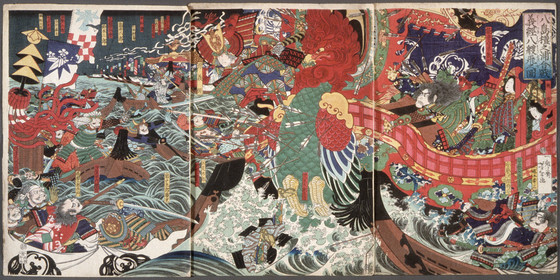Yoshitsune Leaps Over Eight Boats at Dannoura Bay during the Battle of Yashima

Please log in to add this item to your gallery.
View comments
No comments have been posted yet.
Add a comment
Please log in to add comments.
Please log in to add tags.
* Nearly 20,000 images of artworks the museum believes to be in the public domain are available to download on this site.
Other images may be protected by copyright and other intellectual property rights.
By using any of these images you agree to LACMA's Terms of Use.
Yoshitsune Leaps Over Eight Boats at Dannoura Bay during the Battle of Yashima
Alternate Title: Yashima Dan-no-ura kassen Yoshitsune hassō tobi no zu
Japan, 1865, 2nd monthPrints; woodblocks
Triptych; color woodblock print
14 3/8 x 29 1/2 in. (36.5 x 74.9 cm)
Herbert R. Cole Collection (M.84.31.235a-c)
Not currently on public view


